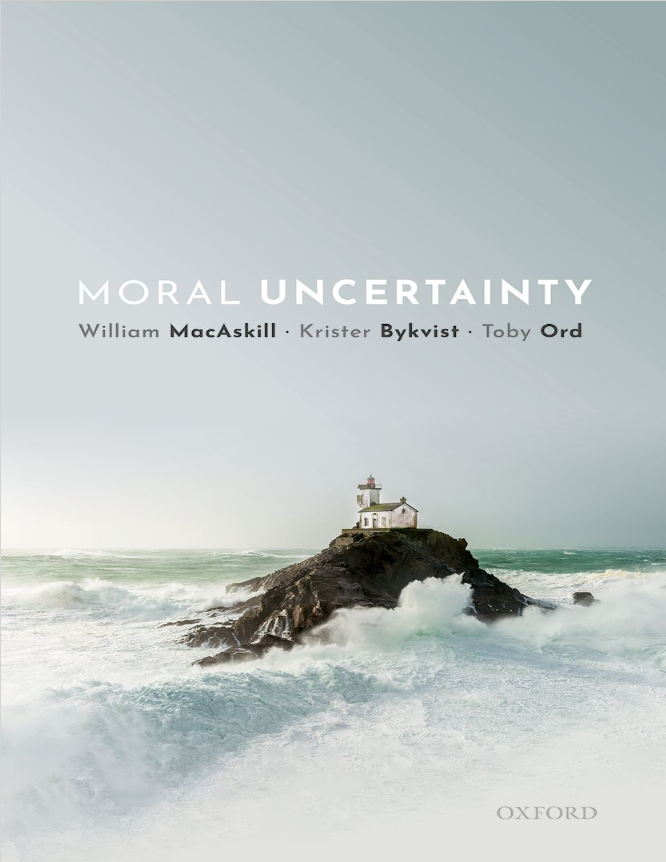Newly released
This book is new and will be uploaded as soon as it becomes available to us and if we secure the necessary publishing rights.

Moral Uncertainty Book PDF
(0)
Author:
William MacAskillNumber Of Reads:
112
Language:
English
Category:
Social sciencesSection:
Pages:
334
Quality:
excellent
Views:
1165
Quate
Review
Save
Share
Book Description
This is an open access title available under the terms of a CC BY-NC-ND 4.0 International licence. It is free to read at Oxford Scholarship Online and offered as a free PDF download from OUP and selected open access locations. Very often we're uncertain about what we ought, morally, to do. We don't know how to weigh the interests of animals against humans, how strong our duties are to improve the lives of distant strangers, or how to think about the ethics of bringing new people into existence. But we still need to act. So how should we make decisions in the face of such uncertainty? Though economists and philosophers have extensively studied the issue of decision-making in the face of uncertainty about matters of fact, the question of decision-making given fundamental moral uncertainty has been neglected. Philosophers William MacAskill, Krister Bykvist, and Toby Ord try to fill this gap. Moral Uncertainty argues that there are distinctive norms that govern how one ought to make decisions. It defends an information-sensitive account of how to make such decisions by developing an analogy between moral uncertainty and social choice, arguing that the correct way to act in the face of moral uncertainty depends on whether the moral theories in which one has credence are merely ordinal, cardinal, or both cardinal and intertheoretically comparable. It tackles the problem of how to make intertheoretical comparisons, discussing potential solutions and the implications of their view for metaethics and practical ethics.
William MacAskill
Will MacAskill Associate Professor in Philosophy and Research Fellow at the Global Priorities Institute, University of Oxford. My academic research focuses on the fundamentals of effective altruism - the use of evidence and reason to help others by as much as possible with our time and money, with a particular concentration on how to act given moral uncertainty.
the Director of the Forethought Foundation for Global Priorities Research, a co-founder and the President of the Centre for Effective Altruism (CEA) and I helped to create the effective altruism movement. Through Giving What We Can, CEA encourages people to commit to donate at least 10% of their income to the most effective charities. CEA also runs over 100 effective altruism local groups, hosts regular effective altruism conferences, and does research into high-impact policy and philanthropic opportunities.
also co-founded 80,000 Hours, a YCombinator-backed non-profit that provides research and advice on how you can best make a difference through your career.
Book Currently Unavailable
This book is currently unavailable for publication. We obtained it under a Creative Commons license, but the author or publisher has not granted permission to publish it.
Rate Now
5 Stars
4 Stars
3 Stars
2 Stars
1 Stars
Moral Uncertainty Quotes
Top Rated
Latest
Quate
Be the first to leave a quote and earn 10 points
instead of 3
Comments
Be the first to leave a comment and earn 5 points
instead of 3